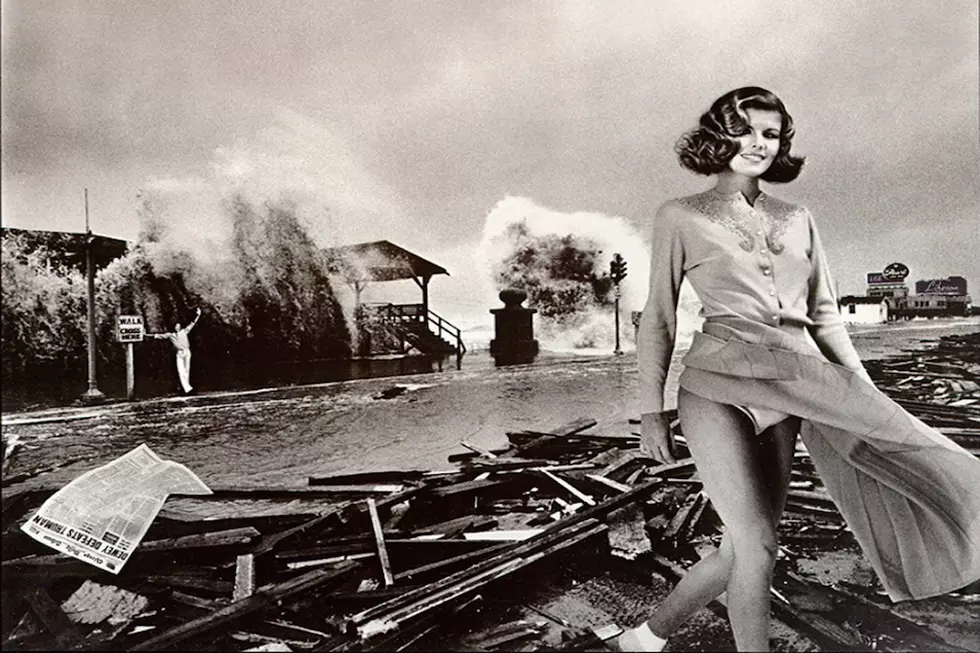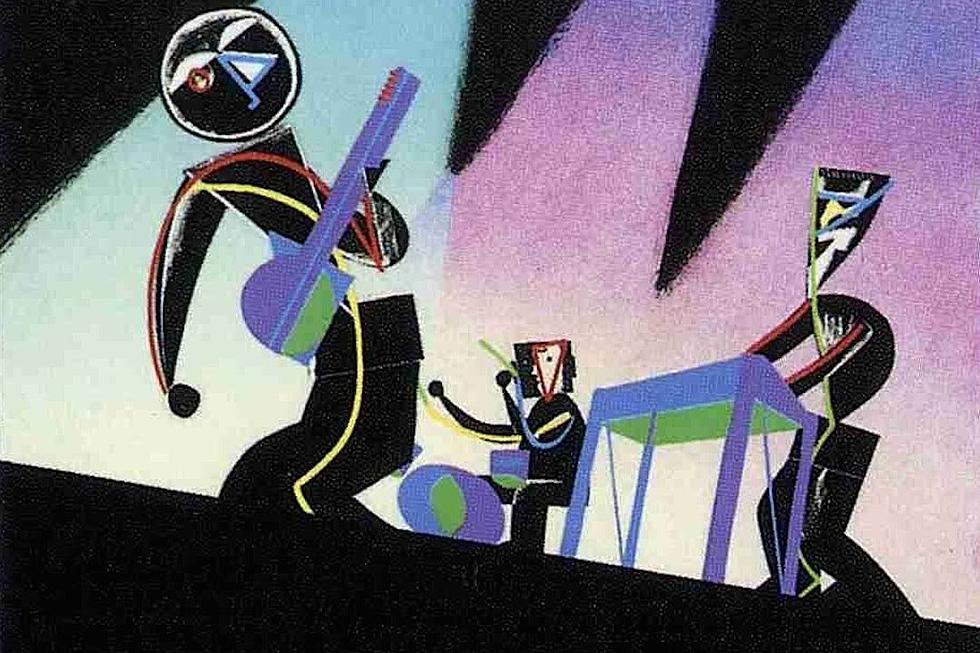
How Rush Scaled Back and Hit Big With ‘Permanent Waves’
It's only fitting that Rush's first LP of the '80s marked a distinctive new chapter for the prog-rock giants. While the band pushed their progressive fervor into the cosmos with the long-form majesty of 1978's Hemispheres, they scaled back considerably for Permanent Waves, the more immediate and accessible follow-up released on Jan. 14, 1980.
The trio – bassist/vocalist Geddy Lee, guitarist Alex Lifeson and drummer extraordinaire Neil Peart – started work on Permanent Waves in July 1979 at an idyllic Ontario farmhouse, composing (as usual) in split camps: Lee and Lifeson working on instrumental jams, with Peart crafting his lyrics.
Throughout, the former group organically veered toward concise arrangements and shorter track lengths, while Peart chose to explore a wider range of topics instead of focusing on a fantasy/sci-fi concept – as he had on Hemispheres and 2112. (Peart did work initially on an adaptation of 14th century epic Sir Gawain and the Green Knight, but after realizing it didn't gel with the other tracks, he absorbed some of those ideas into Permanent Waves' closer, "Natural Science.")
After tracking demos in Toronto with longtime producer Terry Brown, the band relocated to Le Studio in Morin Heights, Quebec – where they recorded their six new tracks during a brisk four-week stint.
Listen to Rush Perform 'Freewill'
By the late '70s, Rush had developed a faithful audience, yet they were still widely regarded as a cult band – long-haired nerds making music for stoners. But Waves modernized Rush's mainstream identity, crashing the American charts at No. 5 and eventually hitting platinum sales – thanks in large part to a pair of infectious album-opening singles, "The Spirit of Radio" and "Freewill."
"Invisible airwaves crackle with life," Lee sings on the former track, a dedication to the joyous eclecticism of Toronto radio station CFNY. Opening with a frantic hammer-on spiral from Lifeson, the track pummels for a trim five minutes, shifting through riffs and hooks with newfound energy.
"It's about musical integrity," Peart told Modern Drummer in 1980. "We wanted to get across the idea of a radio station playing a wide variety of music. For instance, 'The Spirit of Radio' comes from the radio station at home called CFNY, and that's their slogan. They play all great music from reggae to R&B, to jazz, to new wave – everything that's good or interesting. It's a very satisfying radio station to me. They have introduced me to a lot of new music. There are bits of reggae in the song, and one or two verses have a new wave feel to it. We tried to get across all the different forms of music. There are no divisions there."
"Freewill" continues that sprightly pace, navigating a bouncy chorus hook and a theme about mankind's lack of moral evasion. Brown's production keeps the band's deft interplay in sharp focus – it's clear they hadn't lost their virtuosity. Still: there's a surprising amount of 4/4, and a shocking lack of lyrics about ancient gods.
Listen to Rush Perform 'Jacob's Ladder'
Even at their heaviest and most expansive, the band finds inventive ways to update their old-school Rush-isms: "Different Strings" seamlessly blends their acoustic and electric sides, gradually opening up with nimble rhythms and Steve Hackett-esque guitar textures. "Jacob's Ladder" is the LP's brooding centerpiece, defined with Lifeson's blaring, harmonized guitar leads.
"We wanted to build a song around the phenomena called Jacob's Ladder, where the rays break through the clouds," Peart continued. "I came up with a couple of short pieces of lyrics to set the musical parts up. And we built it all musically trying to describe it cinematically. As if our music were a film. We have a luminous sky happening and the whole stormy, gloomy atmosphere, and all of a sudden these shafts of brilliance come bursting through and we try to create that musically."
Permanent Waves earned Rush new hoards of fans, even converting some of their harshest critics. But Lifeson himself wasn't engaged by the album at first.
"I went through a period where I couldn't listen to the album," Lifeson told Music Express. "I was really disappointed. It didn't seem like there was anything new or fresh about the album. We had written the material last summer, had performed three of the songs onstage and had spent a couple of months in recording. By the time we had finished, we were getting tired of the material. It wasn't at all like Hemispheres, which was written two weeks before we recorded it.
"I was really bluesed out about the whole thing," Lifeson continued. "'Jacob's Ladder' seemed to be a typical Rush song, a rehash of something we'd done in the past. But then I started hearing the album on the radio, and I thought 'Wow, this sounds great.' Then I realized I had over-reacted to the album and that I had been overly-critical of small insignificant things that hadn't affected the overall effect of the record.”
Listen to Rush Perform 'The Spirit of Radio'
Even in the face of growing commercial success, Lee's attitude was even-keeled. "I think we achieved success a long time ago," Lee told Circus. "The fact that we can go out and tour for eight months and do exactly what we want to do and make the kind of records exactly the way we want to make them, that's my personal idea of success. And at the same time, we've each got our own homes. We've got cars. Nobody's starving and we're real comfortable."
Rush clearly hadn't followed commercial trends for Permanent Waves – the album's accessibility was a logical evolution of their sound. Even the album title was a lighthearted jab at their New Wave contemporaries (and the critics who scurried to label the Next Big Thing).
"The name is, indeed, a poke at the New Wave scene, but not necessarily the bands themselves," Peart told the Chicago Tribune. "There are many new wave groups we enjoy and respect, like Talking Heads and Elvis Costello and Joe Jackson. Really, the joke was aimed more at the press, especially the English rock press that is inclined to write off any band that was around last week and go for whatever's happening this week.
"We've had plenty of people in the music business tell us to make our songs shorter and more commercial," Peart continued. "Those people aren't thinking in terms of a long-term career for us; we are. We want to do this for a good number of years, until we decide it's time to give it up...For us, it took four albums before we started to break even, and record companies aren't interested in that. Now we're at the point where we can say, 'Shut up, it's none of your business' to people who would try to tell us how to work. For a long time, though, we had to fight like hell."
Top 50 Progressive Rock Albums
The Rush / Metallica Team-Up That Slipped Away
More From Ultimate Classic Rock









